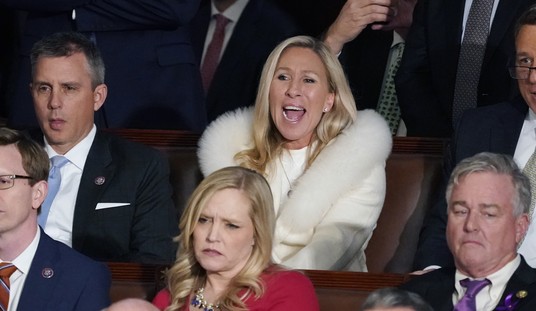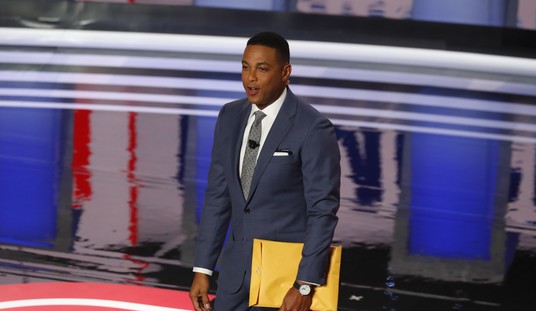A year ago we were told that Egypt was going to become a moderate democratic state ruled by hip Facebook kids. Now we are told that we should be grateful Egypt is going to become a moderate Islamist republic ruled by the Muslim Brotherhood.
The Western media and governments have made terrible mistakes that will destabilize the Middle East — even more — for the rest of our lives, oppress tens of millions of people, cause tens of thousands to flee their countries, and cause thousands to die.
Here is the prime example of that situation at this moment.
As the Muslim Brotherhood openly bids for a monopoly of power in Egypt, the U.S. government is once again supporting the Brotherhood rather than the moderates or army. The Muslim Brotherhood, you see, is supposedly fighting the Salafists, so they are the “good Islamists.” It is like backing a Stalinist Communist Party to keep the Trotskyites out of power, even though the former group is the real threat.
The Muslim Brotherhood, breaking previous promises, is running a candidate for president of Egypt: Deputy Supreme Guide Khairat el-Shater. Shater wasn’t even at the press conference announcing his candidacy. Supreme Guide Muhammad al-Badie — the true architect of Egypt’s 2011 revolution, though few in the West understand this — read a letter by Shater saying he was merely complying with the Brotherhood’s decision.
“We decided that Egypt now needs a candidate from us,” said Mohamed el-Morsi, president of the Brotherhood’s Freedom and Justice Party. But he added, “We have no desire at all to monopolize power.”
As for not seeking to monopolize power? That’s what the Brotherhood gave as an explanation when it was only running candidates for a small portion of seats, then half of them, then every one. Each time, they explained they weren’t running a candidate for president because they didn’t want a monopoly on power.
How can the Brotherhood hold the presidency, control parliament, and write the constitution, and still not have a monopoly on power?
The New York Times has basically endorsed el-Shater and the Brotherhood, calling him “the group’s most important internal advocate for moderation and modernization,” and adding that “many American officials who have met with Mr. Shater … have praised his moderation, business savvy and effectiveness.”
It sums him up as “a conservative but a pragmatist,” which is more than it will probably grant Mitt Romney.
The newspaper does briefly report that Egyptian liberals are getting suspicious about the Brotherhood, and that Shater helped kick “moderates” out of the group. But it quickly recovers, explaining that Egyptians have nothing to complain about since they will have a choice between — what I will call — supposedly “liberal” Shariah, “moderate” Shariah, and “hardline Shariah” candidates:
The Brotherhood’s entry into the race also turns the election into a debate over the future of the Islamist political movement that is sure to resonate in the region. Mr. Shater faces Islamist rivals to his left and right — one a more liberal former Brotherhood leader (Aboul Fotouh), the other an ultraconservative Salafist.
Not exactly.
It works like this: The Brotherhood puts its organization, prestige, and voting base behind one candidate; the Salafist party puts the same behind another. So where will the “liberal” Islamist end up at the polls? Well here’s a hint: in the parliamentary elections, the Brotherhood got almost 50 percent, the Salafists received 25 percent, and the liberal Islamic party got … 1 percent.
While Shater is now defined as the “good guy,” the bad guy is Hazem Salah Abu Ismail. Indeed, the Times explains, even the U.S. government backs Shater since he is needed to beat Abu Ismail. This is why “the United States offered signs of tacit approval over the weekend when the Muslim Brotherhood, Egypt’s largest Islamic group, broke its pledge not to field its own candidate.”
This argument is pure nonsense. After all, if the Brotherhood had thrown its support behind a nationalist or moderate non-Islamist candidate, that person would have buried Abu Ismail in a landslide!
Abu Ismail is evil because he is “an old-school Islamist” who wants to abolish Egypt’s peace treaty with Israel, treat the United States as Iran does, and take away women’s rights.
In contrast, though, Shater is new, a media star, pragmatic, and a moderate Islamist who wants to abolish Egypt’s peace treaty with Israel, treat the United States as Iran does, and take away women’s rights.
It is one thing to back a pro-American dictator or army who may be oppressive at home. It is another thing to back moderate democracy advocates who may be weak and lose. But how can U.S. policy back an anti-American extremist who will be oppressive at home and trample on U.S. interests?
How can the New York Times call the anti-American, anti-Semitic, genocide-advocating, anti-woman, and anti-Christian Brotherhood merely a “religious and anti-colonialist movement”? How can the Washington Post, whose coverage is better, refer to the Brotherhood as a “long-oppressed Islamist group”?
Meanwhile, the non-Islamist moderates continue to commit political suicide. Their latest brilliant move is to embrace that old Arab strategy that has always proven to be disastrous: the boycott. They discovered that the 100 members of parliament chosen to write a new constitution were almost all Islamists. That shouldn’t be surprising, since these two parties have 75 percent in the lower house and even more in the upper house.
So now instead of fighting tooth and claw over every sentence of the new constitution, forcing the Islamists to make some compromises — or at least, if they refuse, to become exposed for their true nature — the moderates have walked out entirely.
Between a catastrophic U.S. policy and a dumb-as-rocks Egyptian moderate strategy, Egypt should be an Islamist state in practice within one year. Then the Middle East is set for decades of turmoil while the United States faces its worst setback in the region since Iran’s revolution more than three decades ago.









Join the conversation as a VIP Member